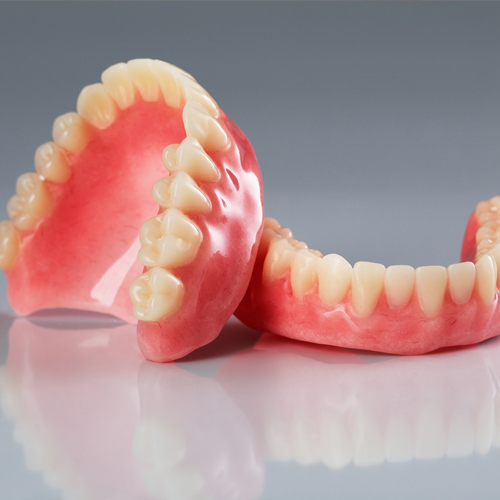Dentures are a popular and effective solution for replacing missing teeth, helping to restore functionality, appearance, and confidence. This guide will provide an in-depth look at the different types of dentures, the process of getting them, and tips for care and maintenance.
What Are Dentures?
Dentures are removable dental appliances that replace missing teeth and surrounding tissues. They are custom-made to fit comfortably in your mouth and can be a full or partial set of teeth.
Types of Dentures
-
Complete Dentures
- Full Dentures: Replace all the teeth in the upper or lower jaw.
- Immediate Dentures: Placed immediately after teeth are removed, allowing for healing while still having teeth.
- Conventional Dentures: Made after the gums have healed from tooth extractions, usually taking several weeks.
-
Partial Dentures
- Removable Partial Dentures: Consist of replacement teeth attached to a gum-colored plastic base, connected by metal framework.
- Fixed Partial Dentures (Bridges): Cemented into place, they use adjacent teeth as anchors.
-
Implant-Supported Dentures
- Description: Dentures supported by dental implants, providing a more secure fit.
- Uses: Ideal for patients with enough bone density to support implants.
- Benefits: Enhanced stability, improved chewing efficiency, prevents bone loss.
The Denture Process
-
Initial Consultation
- Assessment: Your dentist will examine your mouth, discuss your needs, and determine the best type of denture for you.
- Impressions: Molds of your mouth are taken to create custom dentures.
-
Fabrication
- Custom Design: Dentures are crafted in a dental laboratory based on the impressions and measurements.
- Fitting: You will have a fitting appointment to ensure the dentures fit comfortably and function properly.
-
Adjustments
- Initial Fitting: Dentures may feel awkward initially. Adjustments are often necessary for a perfect fit.
- Follow-Up Visits: Regular check-ups to ensure proper fit and function.
Caring for Your Dentures
-
Daily Cleaning
- Brush Dentures: Use a soft-bristled brush and non-abrasive denture cleaner.
- Soak Overnight: Place dentures in water or a denture-soaking solution to keep them moist.
-
Oral Hygiene
- Clean Mouth: Brush your gums, tongue, and palate every morning before inserting dentures.
- Regular Dental Visits: Schedule regular check-ups for professional cleaning and examination.
-
Handling and Storage
- Handle Carefully: Avoid dropping dentures, as they can break.
- Proper Storage: When not in use, store dentures in water or a soaking solution to prevent warping.
Benefits of Dentures
- Improved Appearance: Restores your smile and facial structure.
- Enhanced Functionality: Improves chewing and speaking abilities.
- Boosted Confidence: Helps you feel more comfortable and confident in social situations.
- Affordable Option: Generally more affordable than other tooth replacement options like implants.
Potential Challenges
- Initial Discomfort: Dentures may feel strange or uncomfortable at first.
- Adjustment Period: Learning to eat and speak with dentures takes time.
- Maintenance: Requires regular cleaning and occasional adjustments.
- Bone Loss: Without the stimulation of natural teeth or implants, bone loss in the jaw can occur over time.


